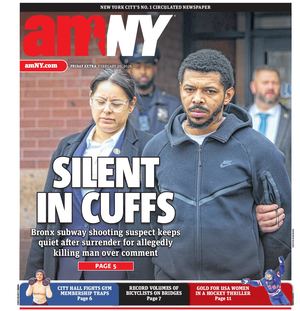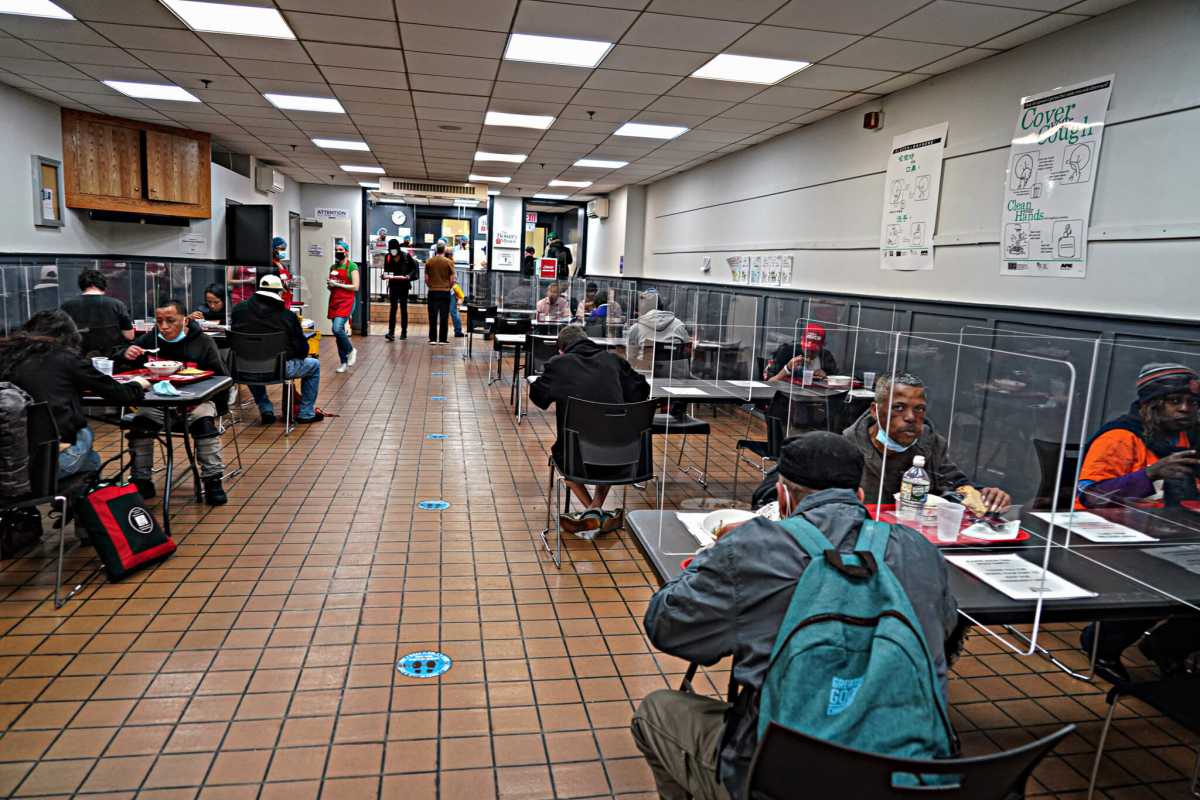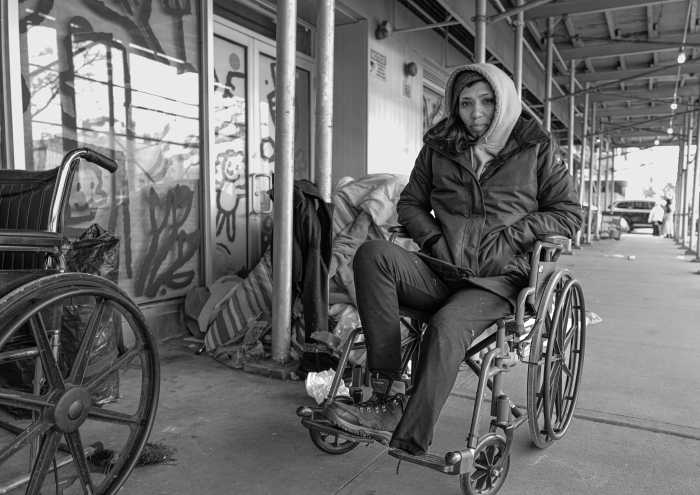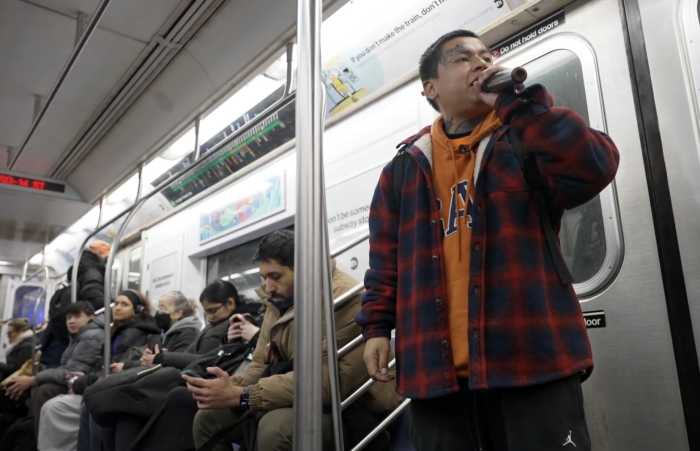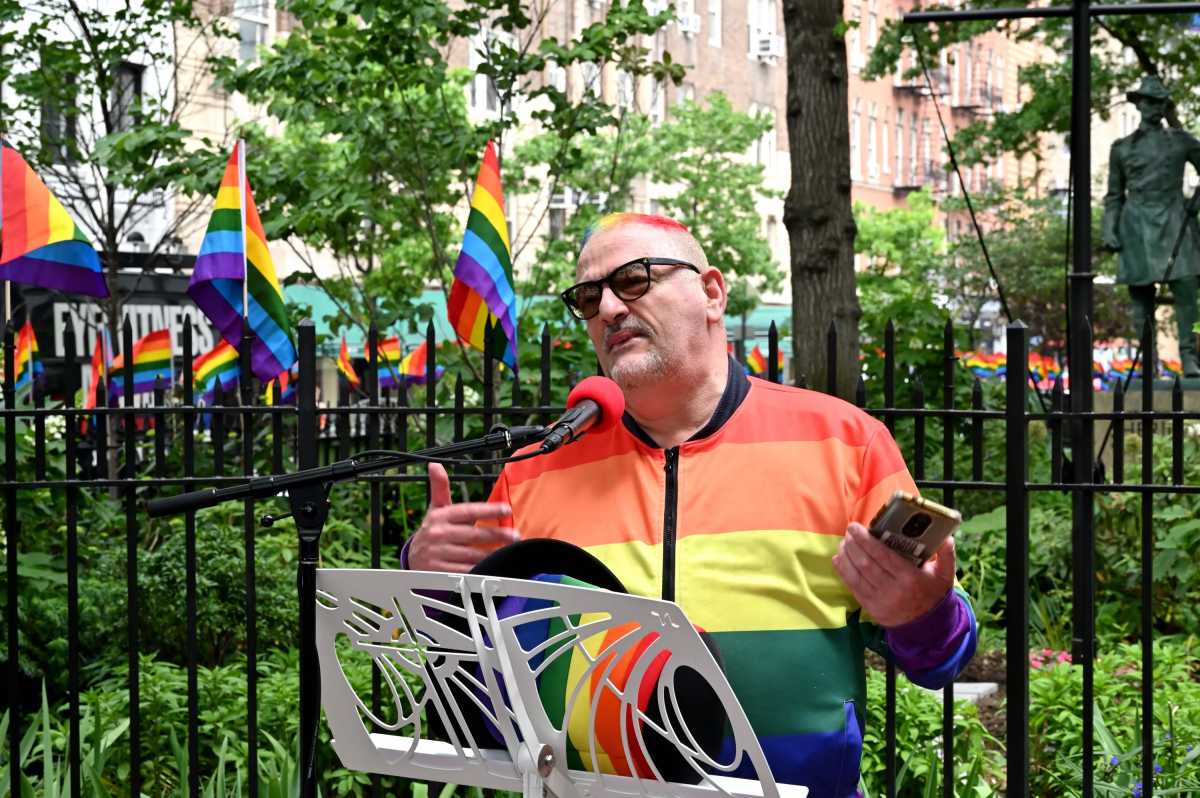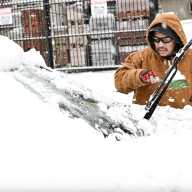Standing at the front of a stage inside the dim chapel of the Bowery Mission, a middle-aged man clutched a microphone. Exasperated, he breathed his demons into the handset, sharing a history of substance abuse, marital issues, and fatherly woes with mission staff and those who have experienced similar heartache.
It’s this candor that allows those at the Bowery Mission to take pride in what they say is a foundation built on a bedrock of trust.
Serving homeless and underprivileged New Yorkers since the 1870s, some of its members, such as Chaplin Jason Storbakken, will be the first ones to admit that they have not always been perfect during their 150-year tenure. But in 2022, they say they attempt to show each and every person who crosses through the threshold of their red doors love and respect.
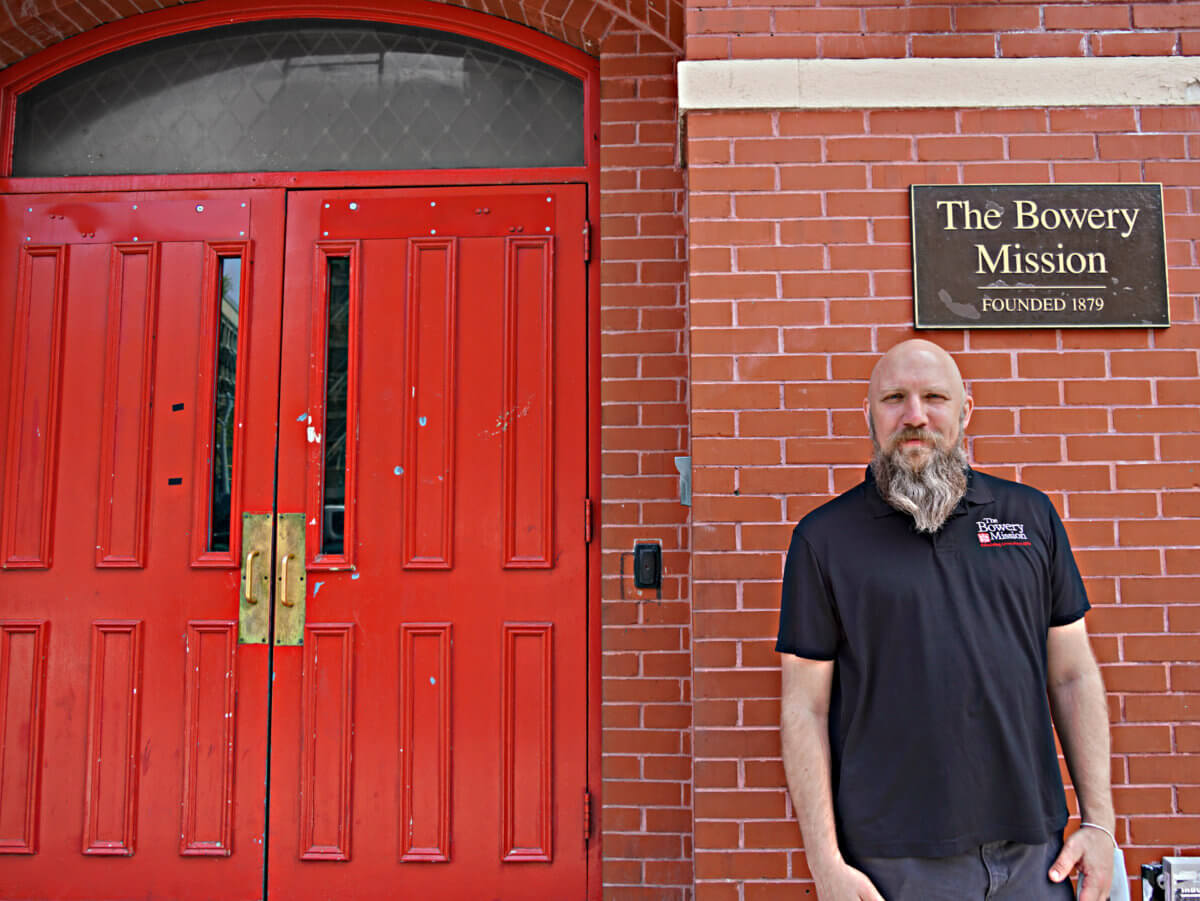
While New York sets its sights on the new mayoral administration’s effort to remove homeless encampments from the city streets, there are those who have long attempted to aid the undomiciled who are now becoming background noise to the city’s more heavy-handed approach.
Located at 227 Bowery, between Rivington Street and Stanton Street, the religious institution offers a variety of services to those in need, including meals, clothing, social services, and even emergency shelter at other locations. But most of all they pride themselves on building trust.
“We emphasize community. I mean, millions of New Yorkers walk past you every day. Never make eye contact, never acknowledge your existence. Here we are like ‘Get in, be part of this community’ but we still try and find the individual within that community,” Brian Ourien, the Director, Brand Marketing and Communications told amNewYork Metro as he toured the facility. “Trust is the biggest thing.”
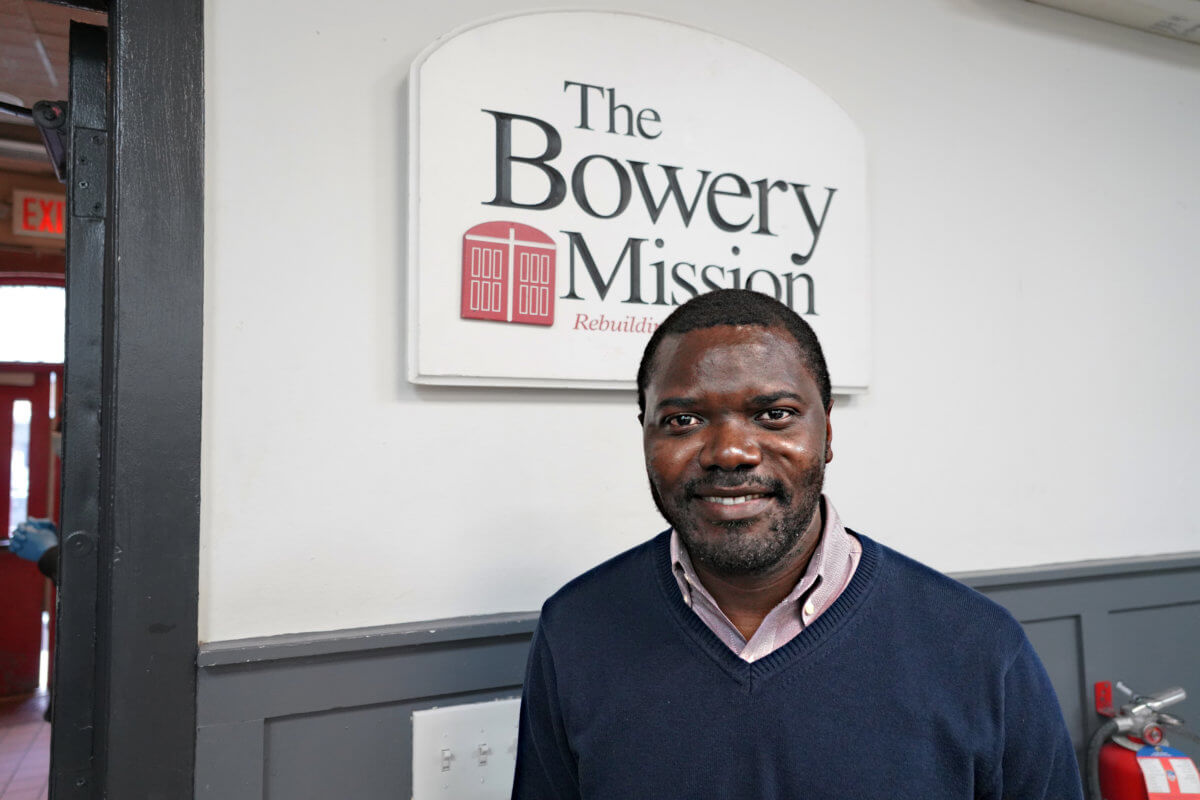
The Bowery Mission underscores that each individual is a vital part of their larger community. It’s imperative that staff get to know each of their members on a first name basis.
But this is no easy task; Ourien estimated that the campus sees about a thousand visitors each day who rely on something as basic as a hot meal.
Still, as long lines began to form outside for lunch, Chaplin Storbakken could be soon greeting members by name. For him this is an important part of the service, especially knowing the trials and tribulations many of his clients have gone through on the streets.
“There’s so much trauma, many of these bodies are holding that it’s like triage. It’s just meeting them where they are, giving them a moment of peace, some sanctuary, withholding judgment, moving beyond the heaven or hell rhetoric, and moving into God is love,” Storbakken said.

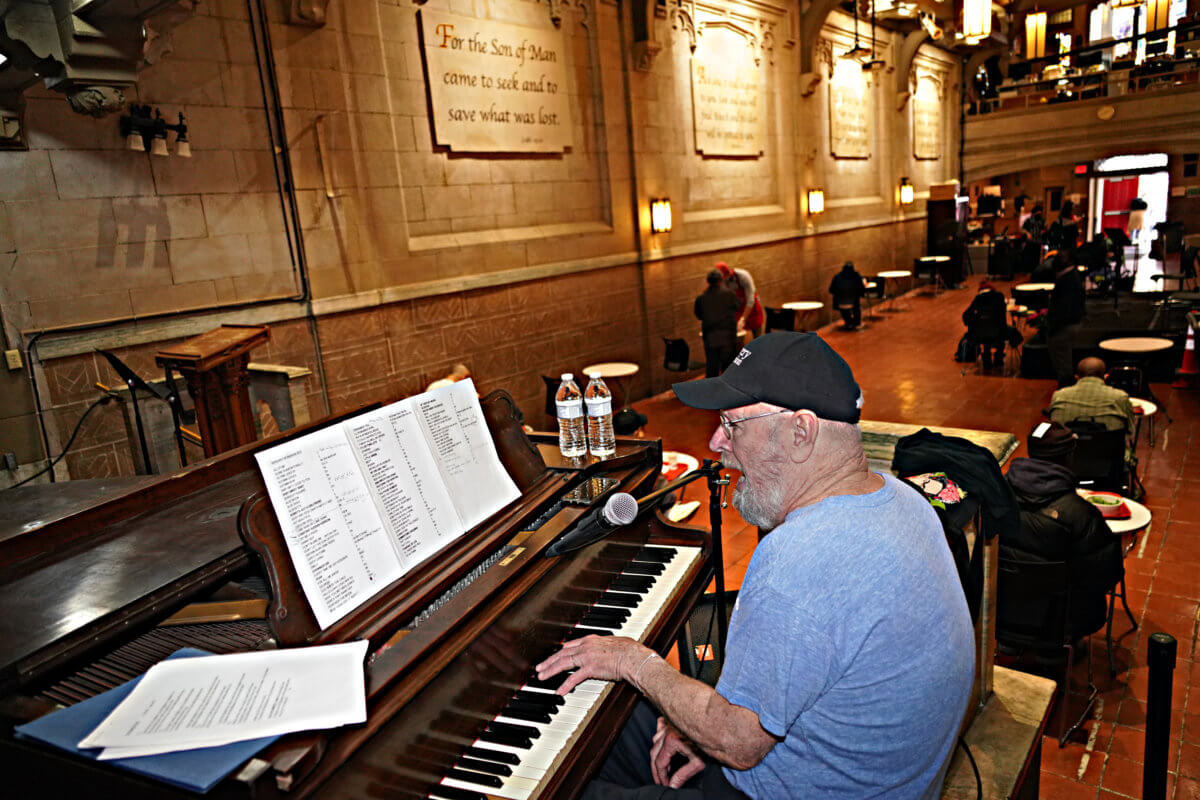
Inside the serving hall, volunteers prepared trays of food and wiped down the countertops while Chef Aisha Prodani was hard at work making large portions of scrambled eggs in the kitchen, using some 90 dozen eggs for one serving alone. Ourien believes that these meals are not only a way to quench hunger, they are also a gateway to recovery and another level in that delicate layer of trust building.
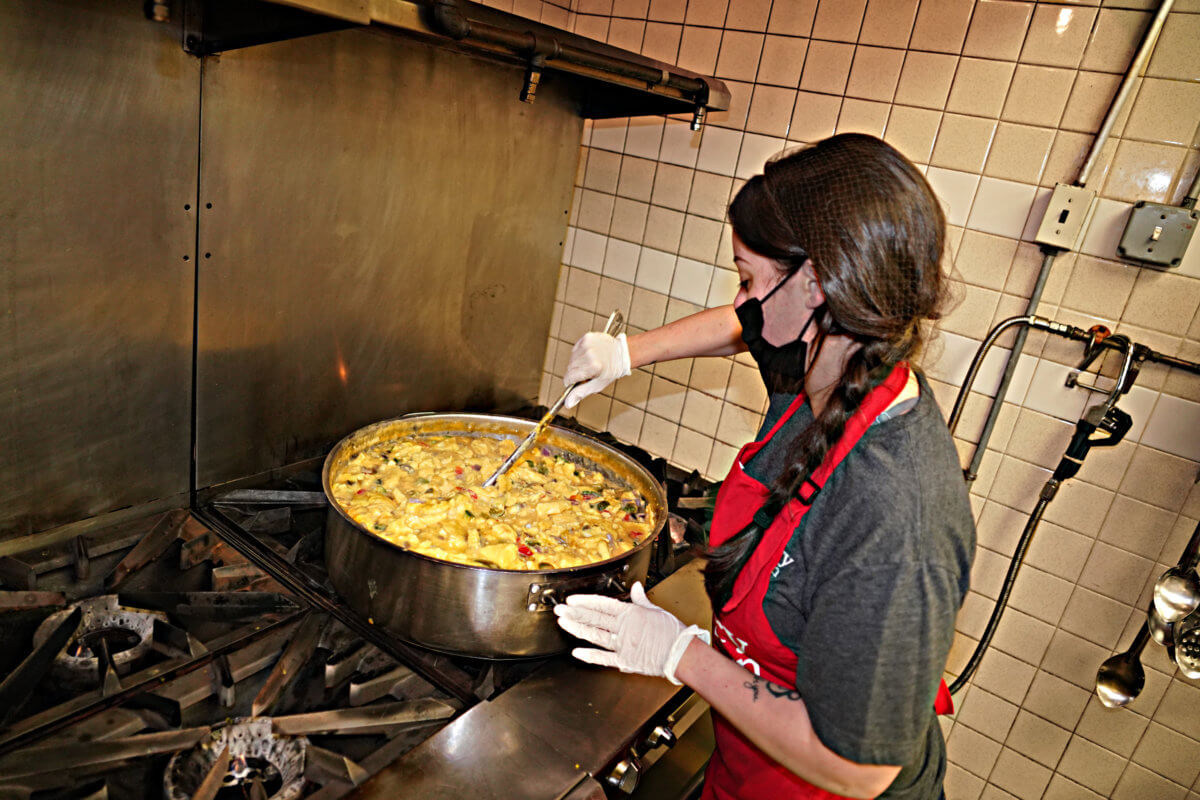
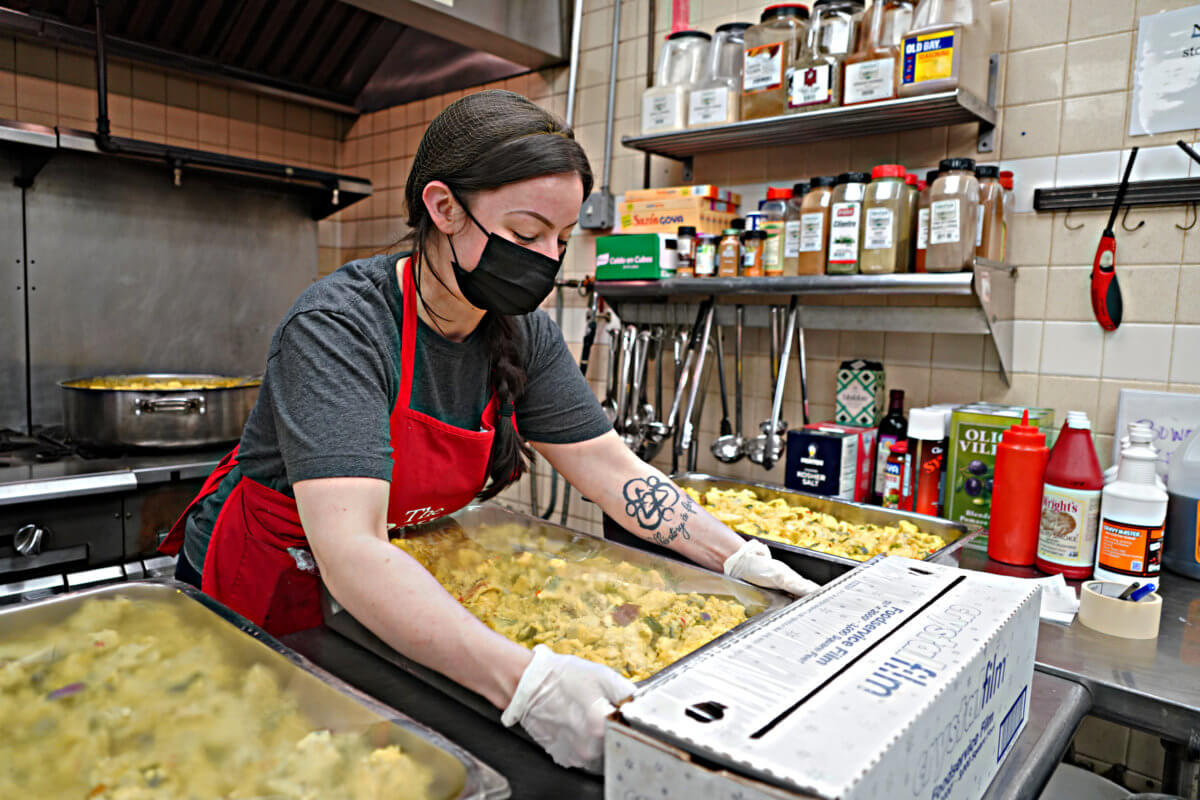
Men and women alike formed a long line through the dining hall as they waited to be served what, for many, might be the only meals they would have that day. The harsh reality of the world and New York could not be more pronounced in that moment, extreme, harsh poetry between what is an otherwise wealthy neighborhood.
These hot meals have become an indispensable resource for individuals like 47-year-old Amir Beyah who, since the dawn of the COVID-19 pandemic, has undergone particularly trying times.
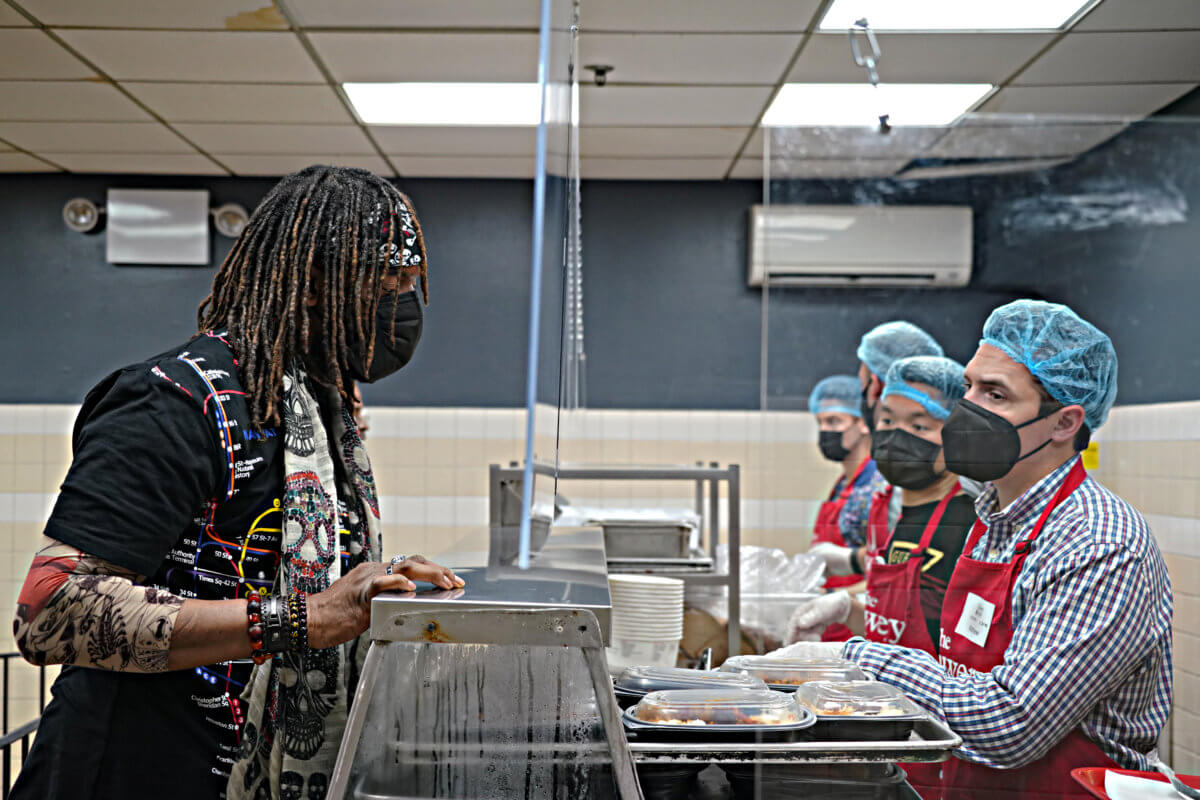
“The Bowery gives you a sense of pride, they don’t judge you when you come in,” Beyah told amNewYork Metro. “It is the one thing in New York City that is not spoken about enough that needs to be spoken about. For me I am on public assistance right now ever since the COVID, so I am in dire need of soap, clothing–so for the past two years I have been coming to get help.”
In order to help meet these basic human needs, the Bowery Mission offers units in which clients can shower and even has a large clothing supply they employ to help dress those who are in need or preparing for a job interview. However, Ourien says that they emergency shelter services are not a permanent solution. It is their aim to be the bridge that helps the undomiciled get back on their feet and find employment and housing.
“We see it as a short-term fix but you meet with a counselor, you sort of talk about your hopes and dreams and what you want to achieve for the future. And that sense of individualized planning for those individuals that come into the shelter,” Ourien said.
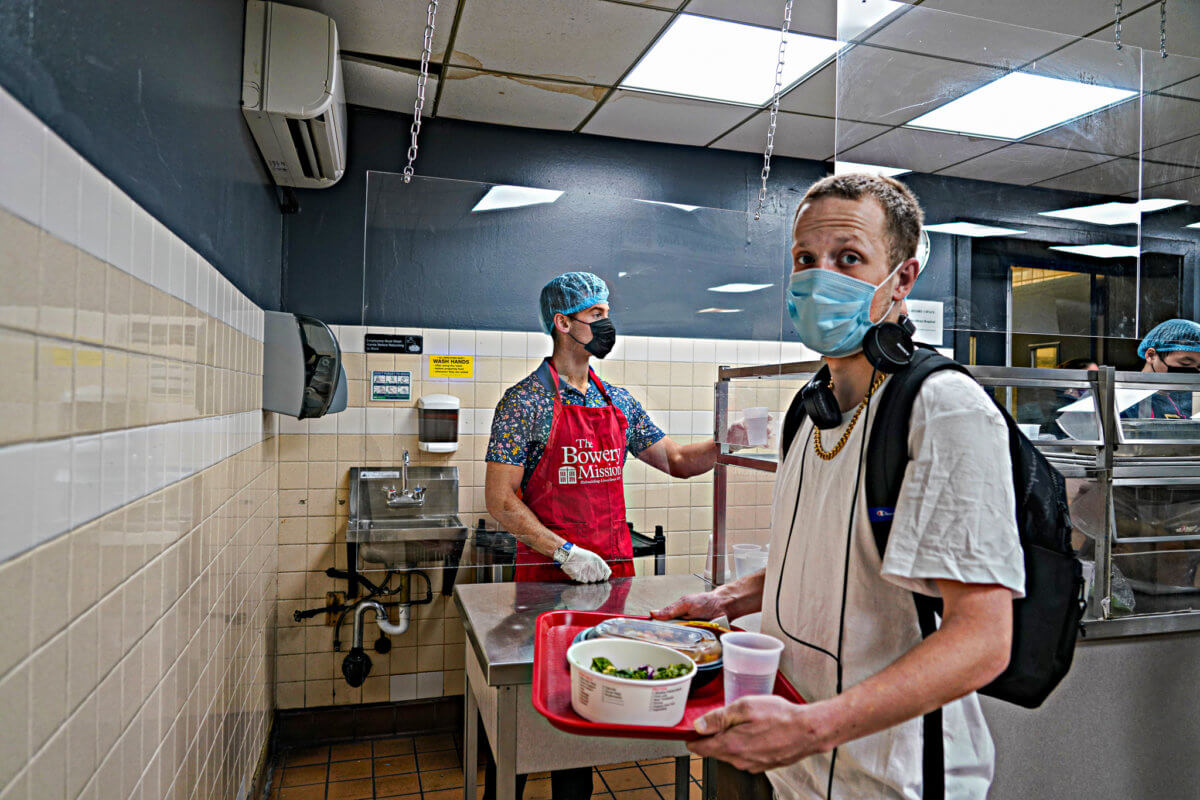
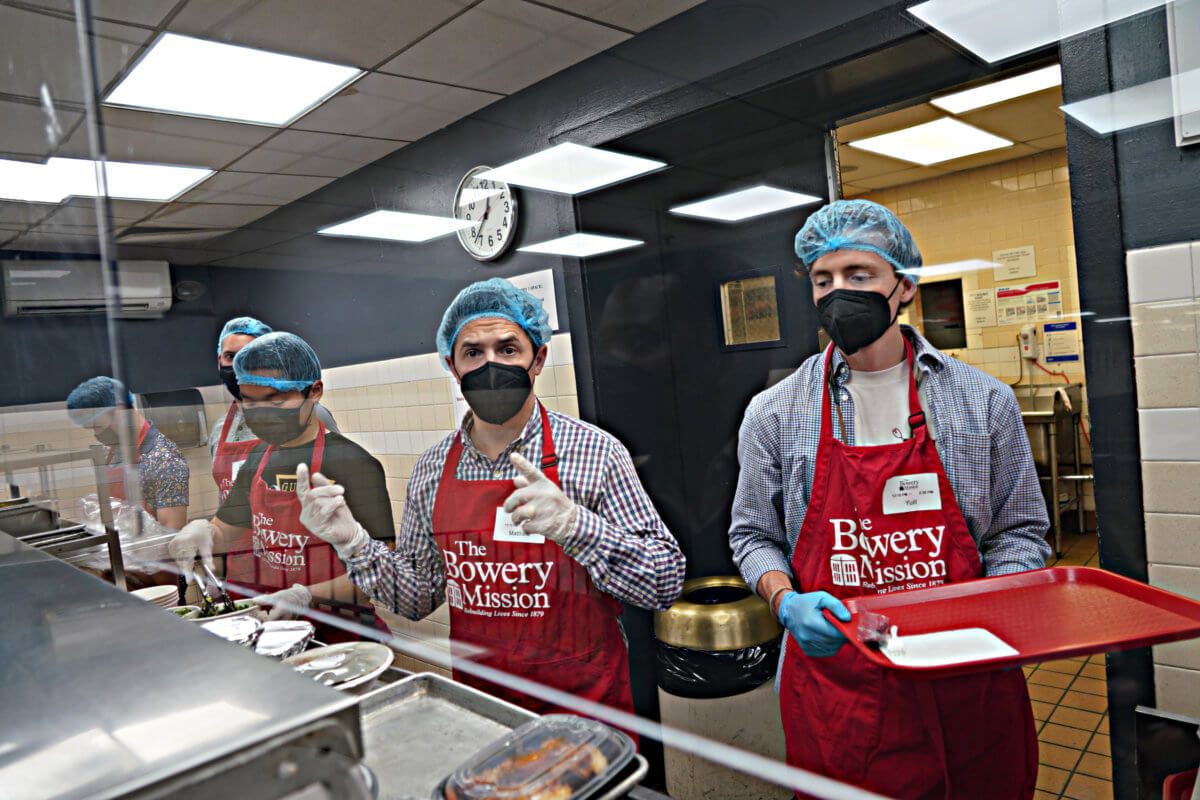
Ourien also touched on the gratitude he has for the work the mission has done and continues to do. But even with all the lives that have been changed due to their long-standing work, he feels that they are a drop in the ocean regarding the immense resources needed to combat the ever-growing rise in food insecurity and homelessness.
The question also arises: how is the mayor’s encampment sweeps affecting the work the Bowery Mission is doing with its clients? While not speaking on this directly, Ourien does query why homelessness is growing and what can be done to help quell the rise.
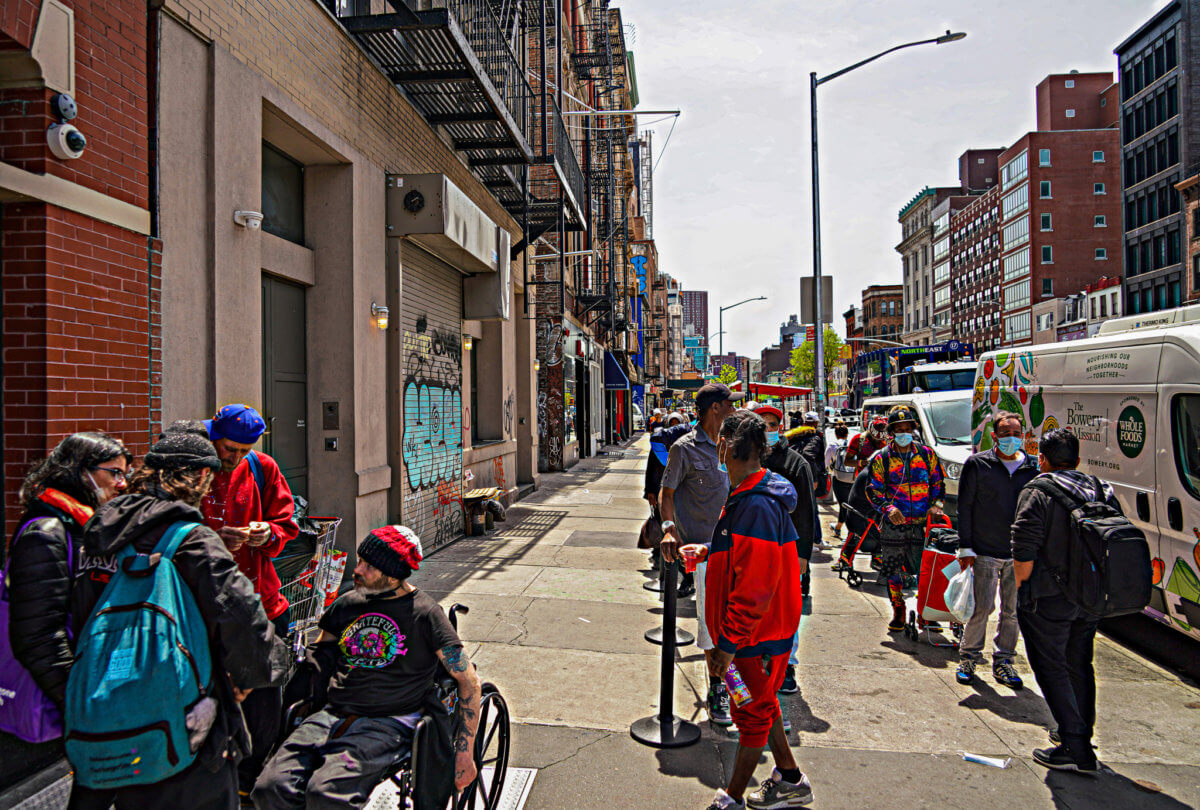
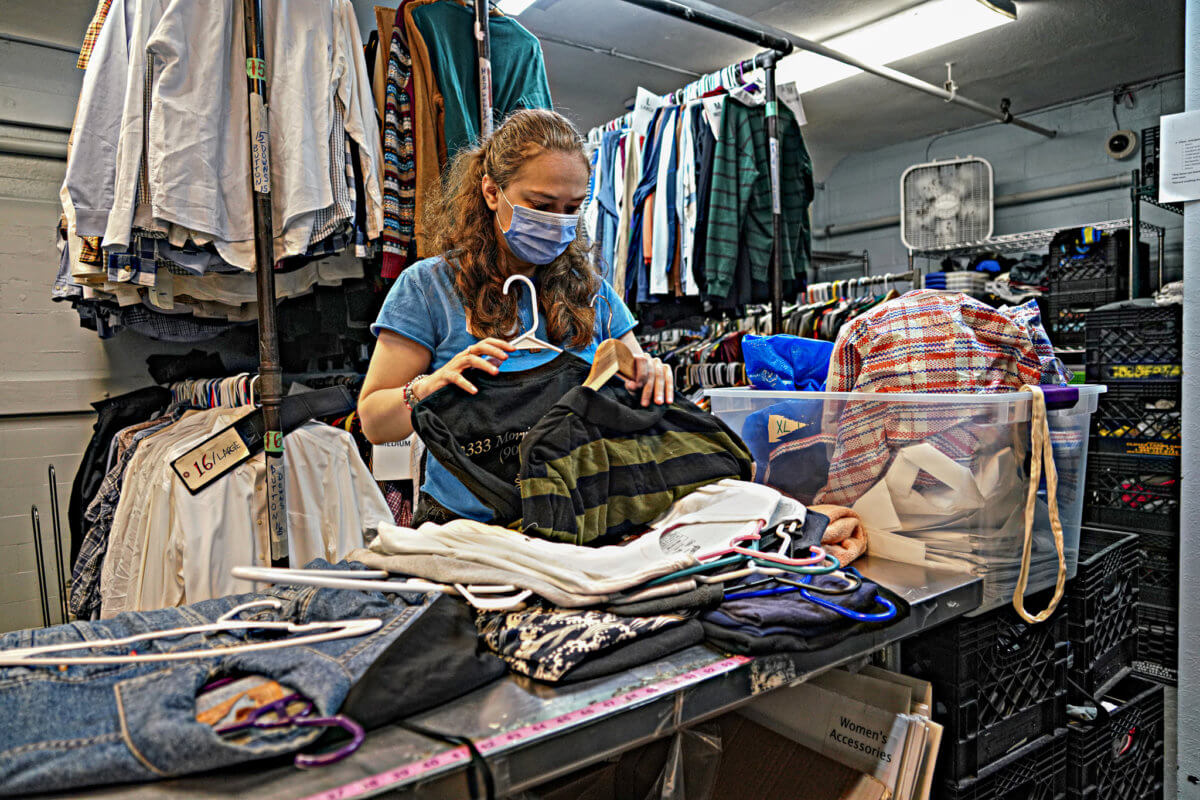
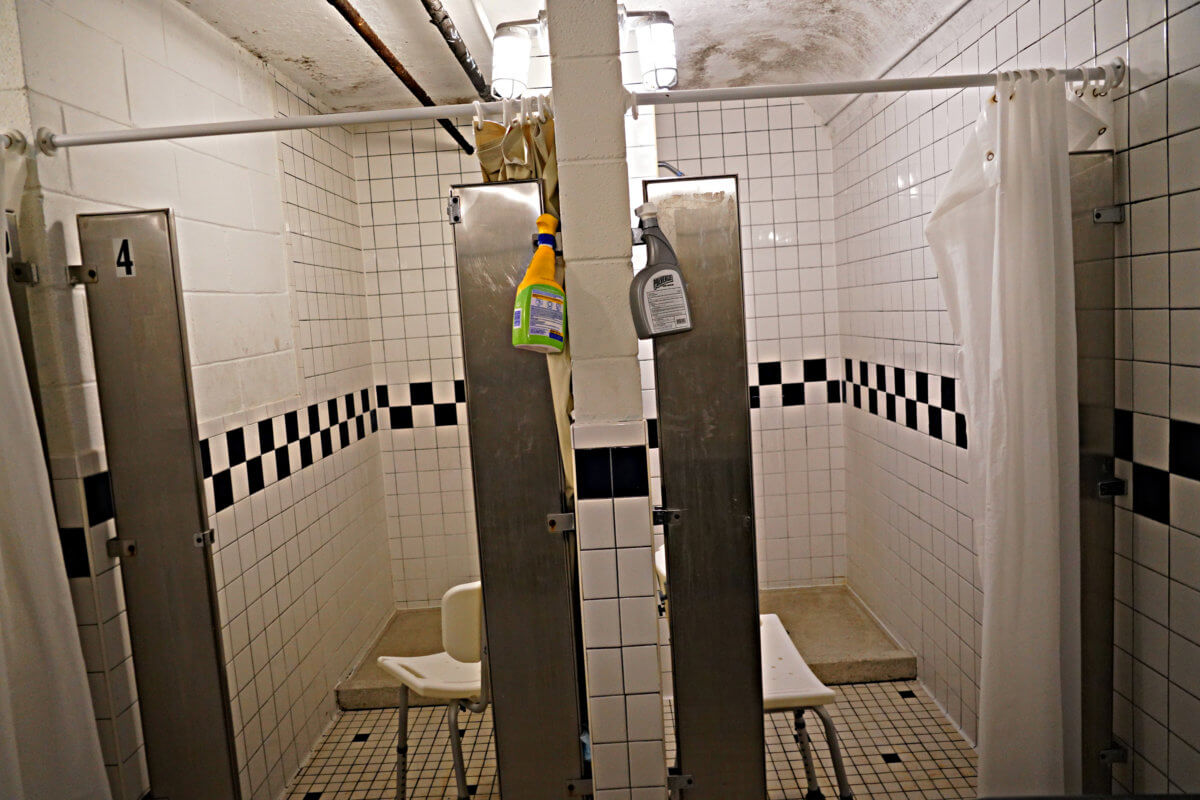
“Why is homelessness growing? What’s feeding our red doors with people in need of food, people in need of shelter. There’s something happening, like we cannot keep doing this, the part we’re playing is small. In the grand scheme of things that homelessness keeps growing. We need macro solutions to help fix the problem. And so we need a myriad of voices speaking to this from politics to corporate to individuals like you and I to step into this space and think how can I participate in changing the landscape of homelessness in New York City,” Ourien said.
Still, the Bowery Mission will strive onward as they have done for one and half centuries, although they say they are always looking for volunteers to help with their services.
If you would like to volunteer, visit the Bowery Mission’s website, bowery.org.
